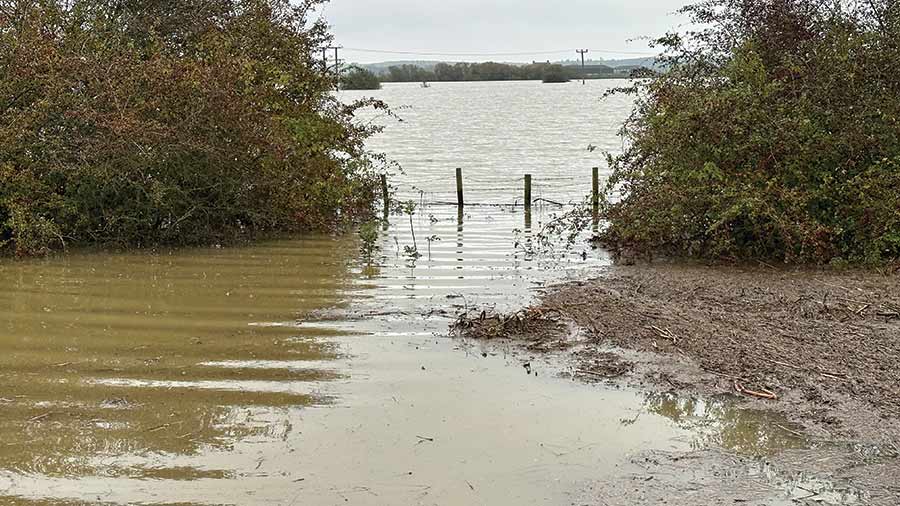Environment Agency blamed for farm flooding devastation
 © Andrew Ward
© Andrew Ward The Environment Agency stands accused of hypocrisy and negligence over its failure to maintain watercourses to prevent farms from devastating flood damage.
Farmers say they are constantly being told by government to look after their soils, the environment and wildlife, but all their good work is being undone by significant damage to farmland after heavy flooding.
Following the devastation caused to UK farms by recent storms, the NFU is asking farmers to sign an open letter urging all political parties to outline their plans to protect farming businesses from flooding.
See also: Q&A: What are your rights when farmland is flooded?
NFU deputy president Tom Bradshaw said years of “austerity inaction” and Environment Agency (EA) failure to carry out vital maintenance work along watercourses to keep rivers flowing was a key factor behind recent farm flooding events.
Danger to life
The Met Office has issued a “danger to life” warning for southern England with Storm Ciaran set to batter the UK with further heavy rain and strong winds on Thursday (2 November).
Lincolnshire arable farmer Andrew Ward said thousands of acres of farmland in the county remain submerged under floodwaters up to 2m deep following Storm Babet, which has left farmers facing severe financial losses and emotional stress.
He questioned how the EA could get away with prosecuting farmers like potato grower John Price for damaging the River Lugg in Herefordshire, but not face any punishment for years of neglect and mismanagement of our rivers.
“If farmers caused 1/100th of the damage the EA causes, we’d be behind bars,” said Mr Ward. “Yet they can drown and damage wildlife and nothing happens.”
His godson, Henry Ward, has suffered devastating flooding again at his arable farm in Short Ferry, near Lincoln, which was severely flooded in 2019.
The Barlings Eau river overtopped in several locations causing massive damage to the banks and flooding his and his neighbours’ land.
Two weeks on from Storm Babet, about 250ha of land remains submerged.
Crop losses
Mr Ward has lost £30,000-£40,000 in recently established winter crops and he faces a similar bill to establish spring crops.
“The EA are useless at managing water. I’m getting sick of trying to fight them and flooding,” he said.
“I don’t think they are going to do the river maintenance required that could stop us flooding again.”
Consequently, Mr Ward is holding conversations with the EA to use his land as a flood storage area to benefit all.
“This would help prevent local communities from flooding and also reduce my financial risk as I would receive compensation for crop losses,” he explained.
“Third, this would make better use of taxpayers’ money as paying me for crop losses would be far less than spending millions repairing the riverbanks every four years.”
NFU Scotland president Martin Kennedy told the union’s autumn conference last week that up to 30 years ago, farmers would regularly remove gravel and silt from pinch points in rivers.
But years of “inactivity” on river maintenance was costing the industry millions in crop losses and damage to infrastructure.
Money pledge
The Scottish government has pledged £50,000 to farm charity Rsabi to assist flood-hit farmers, but Defra has not offered similar support.
Defra secretary Therese Coffey said the EA needs to be “more agile” and build confidence with farmers over action to prevent flooding.
The department is considering a range of options, including greater use of existing powers to lease land for use as floodplains to compensate farmers for flooded fields, she added.
An Environment Agency spokesperson: “We are acutely aware of the impacts flooding can have on farmers and the agriculture sector, and our teams are working hard on the ground to help people recover from the impacts of Storm Babet.
“Between April 2021 and April 2023 we have better protected around 148,000ha of agricultural land through our flooding investment programme.
“Working with farmers and landowners is also an important part of our Flood and Coastal Erosion Risk Management Strategy Roadmap up to 2026 which is supported by a wide range of partners, including the NFU.”
